Do you ever feel the sensation of getting tingles every time you touch your water pipe? If so, then you must not be careless about it as electricity is involved, and you could be in real danger for ignoring such an issue. Now, if you're wondering why it happens and what fixes the problem requires, check out the answer we've found below!
Electric shock incidents are prevalent in houses that use metal water pipes, with the following as potential culprits:
- Natural mineral build-up
- No ground faults
- Improper wiring system in your home
Ensuring a house free from wiring issues and replacing your metal pipes will prevent you from getting shocked. However, these aren't simple tasks, so it's best to let professionals handle them. Additionally, always comply with your local building code for safety standard assurance.
That's quite a lot of information right there, isn't it? Well, continue reading as we go straight into the detailed discussion of the possible causes of getting shocked by water pipes. We will also address how you can safely avoid those occurrences. So let's dive in!
Why Would A Water Pipe Shock You?
Your water pipes could shock you or electrocute you for various reasons. Since water has countless tiny particles, including ions, any natural minerals moving can create chemical changes. Thus, electric charges in metal water pipes could flow easily.
Another reason is that the electrical current is emerging from a wiring issue somewhere within your house. An improper wiring system in your home can shock you, especially if it's in contact with your water pipes. Regardless, please beware if you notice this problem because a poorly managed electrical system is deadly!
It is best to consult an expert to check your water pipes and your house's wiring thoroughly.
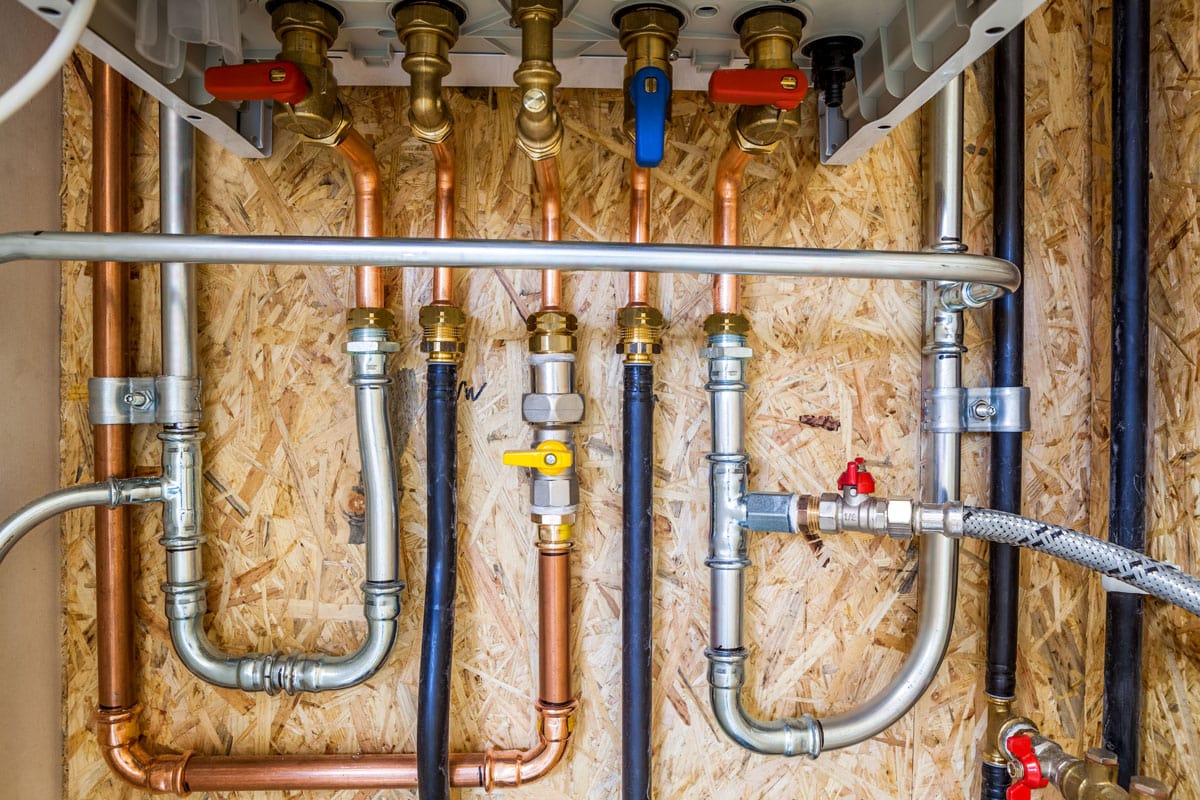
How Do I Know If My House Wiring Is Bad?
You cannot take lightly any electrical issues in your house. Besides fire risks, faulty electrical systems contribute to your water pipe creating a static shock. This kind of issue can cause deaths and could destroy your lifelong home investment in a moment.
Prevent electrical issues from escalating by looking for signs of a damaged system. Check the signs below so that you can troubleshoot your home's wiring.
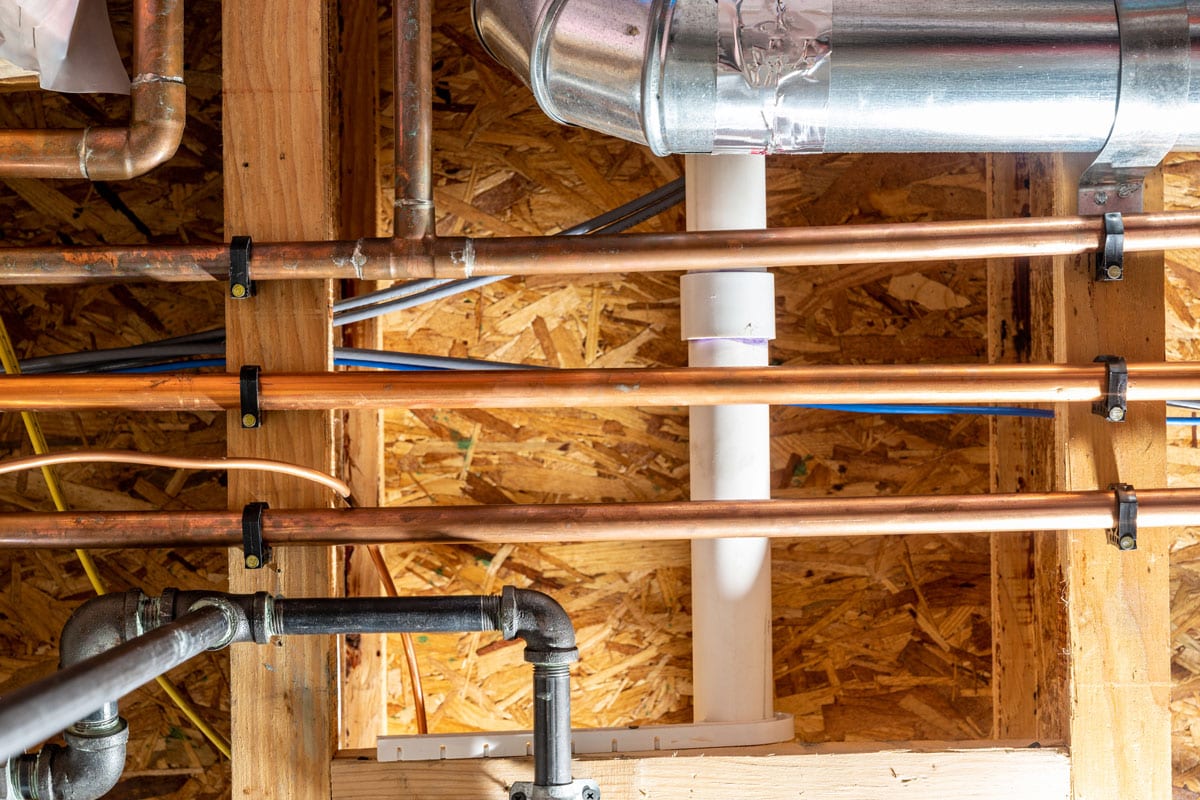
Your Breaker Often Trips
Your house's power breaker is a safety switch serving your entire house with proper electrical current. If your breaker frequently trips multiple times in a month, it is a clear indication of a bad wiring system.
Damaged And Frayed Wires
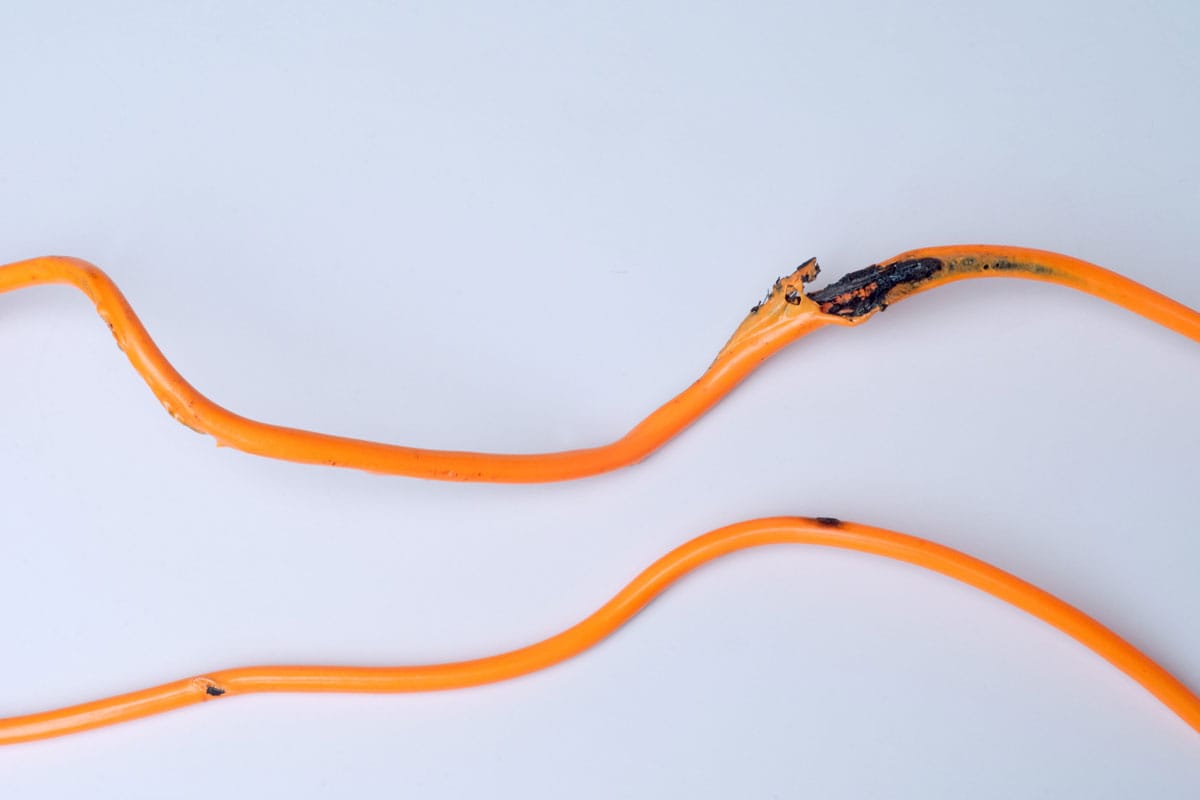
Another bad wiring system indication is observing wires exposed to the insulation layer. Over time, your house wiring can inevitably deteriorate, although most residential homes' wiring systems can last over 50 years. However, it's recommended to inspect your wiring with the help of a qualified electrician if your home is older than 25 years.
Discoloration In Wiring
Watch out for potential hazards near your home's plug ports. If you detect any discoloration or burn signs on your outlets, then most likely, your wiring has gone bad. Things could get a lot worse if they are left unchecked.
Weird Noise In Your Outlets
Another obvious symptom of a bad wiring system is a weird ticking sound along a vibration in your power outlet. This is a result of having a bad outlet or wiring. First, shut off the breaker and then, call your electrician to assess your home's wiring systems properly.
Burning Smell
Watch out for the sign that is every homeowner's nightmare. During an electrical issue, aside from a visible scary spark, a burning smell or smoke could be present. Switching off your power source and unplugging your appliances will avoid further damage. Afterward, contact your electrician to fix them safely for good.
How To Avoid Electric Shock From Your Water Pipes
A mild shock from your water pipes will eventually lead to a greater disaster. That's why you cannot overemphasize the problem. Since we know that water pipe shocking issues involve mainly mishandling the electrical wiring in your house, it's critical to safeguard your house or family from the risk of fire which can be deadly!
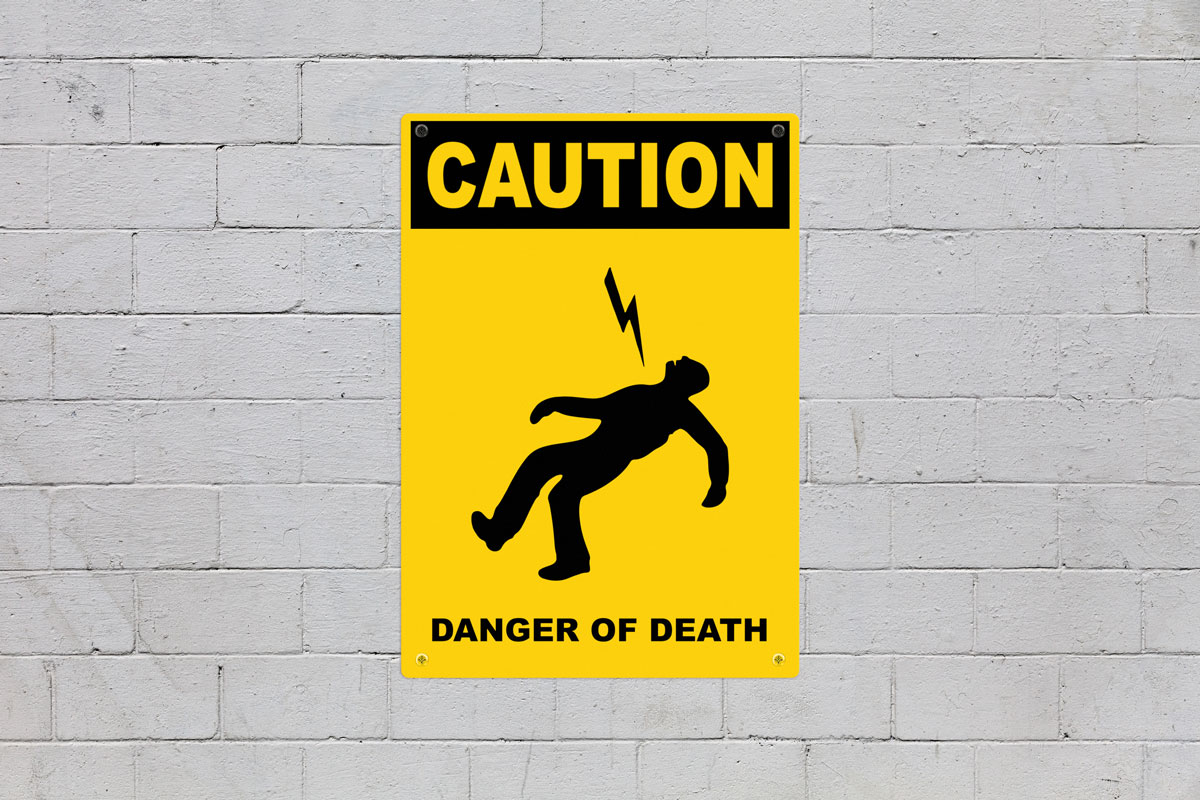
An alarming report in 2002 shows that over 31,000 fires and 200 fatalities were due to poor electrical systems. This is the reason why prevention must be your priority.
Follow these steps below on how you can steer clear of an electric shock coming from water pipes:
Replace Your Metal Water Pipes
Replacing your copper or metal water pipes with a PVC pipe will significantly reduce the risk of water pipe shock. A PVC type of pipe has a property that is extremely resistant to electricity. Moreover, using a schedule 40 PVC pipe is what experts suggest as it perfectly works in most residential water piping systems.
See this schedule 40 PVC pipe on Amazon.
Build A Ground Electrode
Another simple way to avoid shock in your water pipe is to set up a ground in your house. A two-ground bar is enough, and it should be bonded in all metallic water lines or metal gas lines.
What Is The Proper Ground Depth For A Metal Water Pipe?
If replacing all your metal water pipes isn't practical and possible, you can still use them safely as long as you install them with ground electrodes. Following your local building code secures ideal ground installation. Doing so will make your metal water piping system free of electric shock.
Depending on where you reside, your local building code will always dictate the ideal ground depth for your water pipe. According to section 250.50, underground metal water pipe connections down 10 feet or more will require ground electrodes. Also, these metal pipes should be in direct contact with the ground surface for it to have one ground.
How Do You Test If Your Water Pipes Are Electrified?
If you suspect your grounding electrode isn't doing its job anymore, you can use any reliable ground meter or clamp-on ammeter to conduct a test reading for current verification. Just ensure to attach or clamp the ammeter properly to your PEX pipes or whatever pipes you have.
The reading result should be almost zero current and not higher than 500mA. This current level is above the safety standard set by National Electrical Code (NEC). Fixing the issue can only be done correctly by an expert.
Get this clamp-on ammeter on Amazon.
What Should You Do After An Electric Shock Happens?
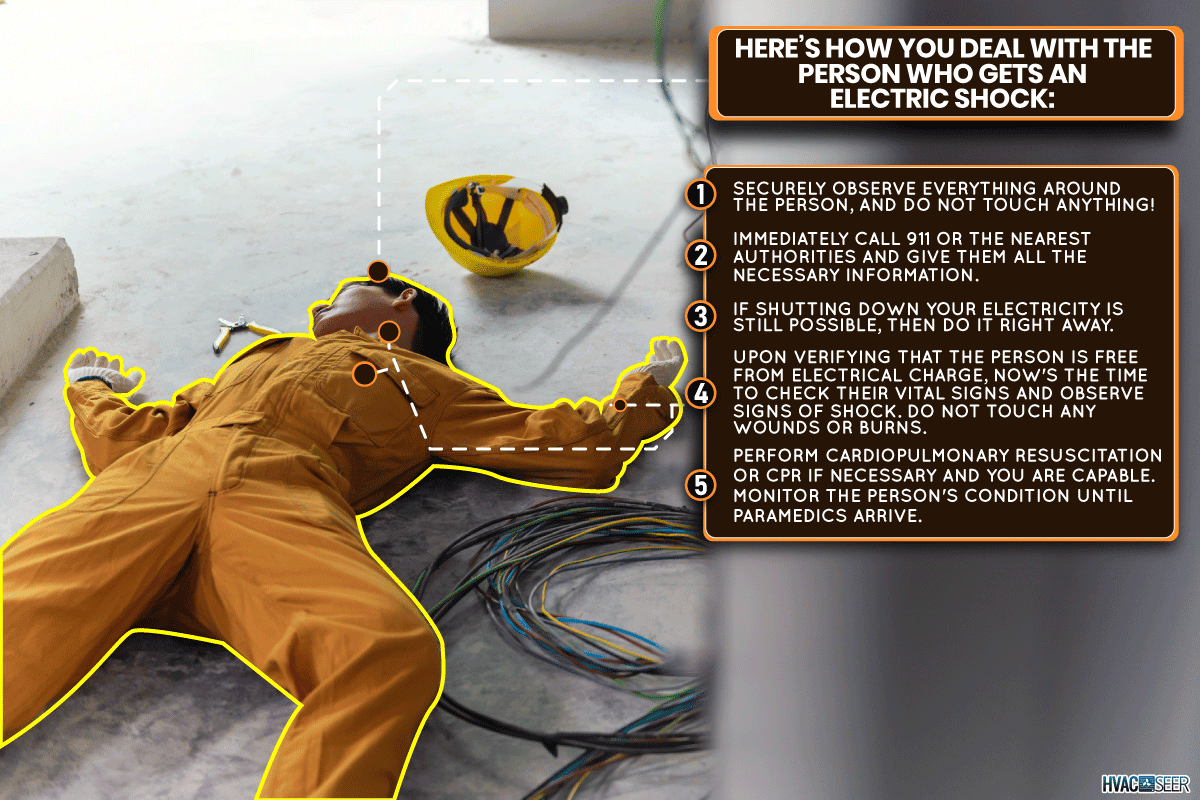
Remember that during an unpleasant incident, panic can be your worst enemy. So we have included first aid tips to at least give you a refresher on what you should do after an electric shock occurs.
Here's how you deal with the person who gets an electric shock:
- Be vigilant! Securely observe everything around the person, and do not touch anything! Touching the person could also shock you, resulting in serious injuries.
- Immediately call 911 or the nearest authorities and give them all the necessary information.
- If shutting down your electricity is still possible, then do it right away.
- Upon verifying that the person is free from electrical charge, now's the time to check their vital signs and observe signs of shock. Do not touch any wounds or burns.
- Perform cardiopulmonary resuscitation or CPR if necessary and you are capable. Monitor the person's condition until paramedics arrive.
Note: Using these steps could help save lives during a tragic incident. However, a panic attack can even intensify the situation. So staying focused and calm is the key to performing first aid well.
To Wrap Things Up
Getting shocked by your water piping may be due to several reasons, which include faulty wiring and the natural minerals' chemical reactions, along with not employing ground electrodes.
This issue requires a quick evaluation and actions with proper sufficient electrical know-how. You must also refer to your local building code and apply all of its standards to ensure your safety.
If this post has helped you, also read our other articles below!
Are Cold Water Pipes Grounded?
Water Pipe And Electric Cable In Same Trench? Is It Safe? Here’s What You Need To Know.


